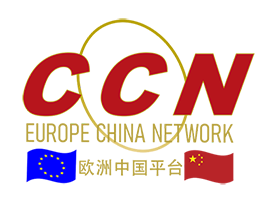Greece – Benefits for accidents at work and occupational diseases
This chapter includes all you need to know about benefits for accidents at work and occupational diseases in Greece.
Accidents and occupational diseases are not covered by a separate branch of insurance. Illness and temporary loss of working capacity come under the health insurance scheme, while invalidity and death are subject to the relevant pension insurance provisions.
In what situation can I claim?
- Work accident: if you are a salaried employee, you come under the EFKA insurance scheme and are the victim of an accident that either took place during work or in relation to work, or while travelling to or from work, then you are entitled to the benefits in kind and in cash which are provided in the event of a work accident.
- Occupational disease: if you are directly insured or a pensioner and you suffer from a chronic illness related to the hazards of your job, which occurred after a certain time period, then you are entitled to the benefits provided in the event of occupational disease.
What conditions do I need to meet?
- Work accident: in the event of a work accident, you are entitled to cash benefits and benefits in kind regardless of the length of insurance coverage. In other words, it is sufficient to have one day of insurance.
- Occupational disease: in the event of occupational disease, no minimum insurance period is required.
All cash benefits resulting from work accidents or occupational diseases are – as a rule – subject to tax.
What am I entitled to and how can I claim?
- Benefits in kind: in the event of temporary loss of working capacity, you are entitled to the same benefits in kind (medical care, hospital care and hospitalisation) as those provided in the framework of healthcare benefits.
- Benefits in cash: you are entitled to a benefit that is paid from the first day that the accident is reported; the amount is calculated in the same way as the ordinary illness benefit is calculated. The benefit is provided for the same time period as the illness benefit.
In the case of permanent invalidity or death resulting from an accident at work, you will be paid an invalidity pension or your dependants will receive a survivor’s pension, respectively, in accordance with the provisions on pensions due to invalidity or death.
Furthermore, in the event of death, a benefit is provided to cover funeral costs.
Either you or someone authorised by you must report the accident to your employer and to the local EFKA office within five working days from the day following the accident. If the accident results in total invalidity, the reporting deadline is extended to one year, and if it results in death, to two years.
Know your rights
Publication and website of the European Commission:
Who do you need to contact?
Unified Social Security Fund (EFKA)
International Relations Directorate
Αγίου Κωνσταντίνου 8/8, Agiou Konstantinou street
10241 Αθήνα/Athens
ΕΛΛΑΔΑ/GREECE
Tel.: +30 210 6783661
Website: http://www.efka.gov.gr
https://ec.europa.eu/social/main.jsp?catId=1112&intPageId=4564&langId=en&
Greece – Survivor’s benefits
This chapter includes all you need to know about the benefits you are entitled to in the event of death of a family member in Greece.
Periods of insurance completed by the deceased in a Member State of the EU, EEA and Switzerland can be counted as insurance periods covered in Greece and must be stated in all applications submitted by you.
Here you will find information on the following benefits:
- Pensions due to death (Σύνταξη λόγω θανάτου/ σύνταξη επιζώντων)
- funeral benefit (Έξοδα κηδείας)
In what situation can I claim?
In the event of death of an insured individual or pensioner, the members of his/her family are entitled to survivor’s pension on certain conditions.
- Pensions due to death
Widow’s pension:
The surviving spouse has to be 55 years old when the death of the insured person or pensioner occurs.
If the death occurred before the surviving spouse reached 55 years of age, the pension is paid for 3 years. When the surviving spouse reaches the age of 55 while receiving the pension, it is interrupted when the 3 years period is over, but new payment begins when the surviving spouse is 67 years old. These restrictions do not apply to the surviving spouse who has a child or children unable for any gainful employment due to a level of disability (67% or more).
The surviving divorced spouse receives pension if the following conditions are fulfilled:
- The former spouse, before his/her death, had the duty to pay alimony (based on court decision on contract between former spouses).
- 10 years of marriage were completed before the divorce was approved by court decision.
- The divorce was not the result of severe breach of marriage caused by the person applying for pension.
- The surviving divorced spouse is not remarried or did not enter into civil partnership.
- The yearly personal tax income does not exceed the double amount of the yearly pension granted by the former Agricultural Insurance Organisation (OGA) to the uninsured pensioners of very old age.
The partners from civil partnership have the same rights in terms of social insurance, benefit, obligation or restriction, as married couples.
Orphan’s pension:
Legitimate children, recognised children, adopted children and those considered as such have to fulfil the following requirements:
- They are not married and are less than 18 years old. This limit is extended to 24 years if they are attending higher education in Greece or abroad, or if they are enrolled in vocational training institutes/centres/schools.
- When the insured died, they are not married and are incapable of any gainful activity (if the disability started before they reached 24 years of age). In this case the pension continues to be paid after they are 24 years old.
- Funeral costs: as a rule, compensation is paid to the widow/widower or the person who paid for the funeral; compensation is not paid in the event of death of a dependant.
What conditions do I need to meet?
- Pensions due to death: if the deceased has accumulated 1,500 insurance days, of which 300 were accumulated in the 5 years prior to his/her death, then you are entitled to survivor’s pension.
As a rule, pensions are subject to tax.
- Funeral benefit: if the deceased was not a pensioner, in order to receive the funeral benefit s/he must have accumulated 100 days of insurance in the last year prior to his/her death or in the last 15 months of his/her life, without taking into account the last three months.
The supporting documents that you are required to submit to your EFKA branch include the health booklet of the deceased, a death certificate, his/her insurance booklet (if the deceased was working) or a certificate on the discontinuation of his/her pension (if the deceased was a pensioner), as well as the original receipts issued by the funeral home.
What am I entitled to and how can I claim?
Pensions due to death
The surviving spouse receives 50% of the pension the deceased received or was entitled to receive.
If the marriage took place after the old age pension was granted to the deceased pensioner, the survivor’s pension is decreased depending on the age difference between the deceased and the survivor by 1 to 5%.
If there are a surviving spouse and a divorced spouse, the above amount is allocated as follows: the surviving spouse receives 75% and the divorced spouse with at least 10 years of marriage receives 25%.
The benefit is subject to a means-test (on own income). It is paid every month and there are no additional payments and no maximum duration of benefit receipt.
Each child receives 25% of the pension of the deceased parent. If the child has lost both parents the amount he/she receives is double (50%).
The benefit is not means-tested. It is paid every month and there are no additional payments.
In order to apply for a survivor’s pension please click at:
https://www.efka.gov.gr/el/syntaxioychoi/elektronike-aitese-syntaxiodoteses
Funeral costs: this is a lump-sum benefit which is equal to eight times the reference pay of the highest insurance category.
https://www.ika.gr/gr/infopages/opad/files/dikaiol_exoda_kideias.pdf
Forms you may need to fill in
https://www.efka.gov.gr/el/syntaxioychoi/elektronike-aitese-syntaxiodoteses
Know your rights
Publication and website of the European Commission:
Who do you need to contact?
Unified Social Security Fund (EFKA)
International Relations Directorate
Αγίου Κωνσταντίνου 8/8, Agiou Konstantinou street
10241 Αθήνα/Athens
ΕΛΛΑΔΑ/GREECE
Tel.: +30 210 6783661
Website: http://www.efka.gov.gr
https://ec.europa.eu/social/main.jsp?catId=1112&langId=en&intPageId=4568
Greece – Invalidity pensions
This chapter includes all you need to know about invalidity pensions in Greece.
Periods of insurance covered in another Member State of the EU, EEA and Switzerland are counted as insurance periods covered in Greece and must be stated in all applications submitted by you.
In what situation can I claim?
If you have covered the required insurance period and if you have been deemed disabled by the Centre for Certifying Invalidity (KEPA) with a degree of disability of at least 50% (if you are insured for the first time after 1 January 1993), or at least 67% (if you were insured for the first time before 31 December 1992), then you are entitled to an invalidity pension.
Furthermore, dependants are entitled to an additional amount per month, on certain conditions.
Please note that pensioners are required to be re-examined by KEPA, unless the duration of their invalidity has been deemed indefinite.
What conditions do I need to meet?
The requirements that need to be met in order to be entitled to this pension differ according to the cause of the disability.
- Invalidity pension due to non-occupational disease: in order to gain access to invalidity pensions, you must have accumulated – within the former IKA-ETAM scheme – at least:
- 4,500 insurance days;
- or 1,500 insurance days, 600 of which were in the last 5 years prior to the onset of the disability;
- or 300 insurance days during the 5 years preceding the onset of the disability if you are not yet 21 years of age (this number gradually increases to 4,200 through the addition of 120 days per year after you turn 21).
- Invalidity pension due to an accident at work or occupational disease: in order to be entitled to this invalidity pension due to accident at work, you are required to have completed at least one insurance day after registering with the Unified Social Security Fund (EFKA) (former IKA-ETAM), while in case of an occupational disease, certain requirements from the statute of former IKA-ETAM need to be fulfilled as well.
- Invalidity pension due to a non-work-related accident: in order to be entitled to this invalidity pension, you are required to have completed:
- 2,225 insurance days or
- 750, of which 300 must be in the 5 years preceding the onset of the disability.
- Old-age pension for disabled persons: apart from the general invalidity pension categories, pensions are also given to persons who are totally blind or who suffer from certain illnesses, regardless of their age.
In order to receive a pension, the persons coming under the special categories must have a degree of disability of over 67% and they must have accumulated 4,050 insurance days (or 15 years).
In order to establish entitlement to a pension, periods during which illness and unemployment benefits were received are also counted as insurance days.
You can convert your invalidity pension into an old-age pension if you meet the insurance and age requirements, namely 4,500 insurance days and 67 years of age.
Pensions paid to persons with a degree of disability of at least 80% are exempt from tax.
What am I entitled to and how can I claim?
The amount of the invalidity pension is determined based on the degree of disability and the beneficiary’s earnings prior to filing the application for a pension; only in certain cases is the type of disease taken into account.
In particular:
- insured persons who are deemed severely disabled (80% and higher) are entitled to a full pension.
- insured persons who are deemed to have moderate disability (degree of 67% to 79.9%) are entitled to 75% of the full pension, unless they have covered 6,000 insurance days or if the disability is mainly caused by mental illness, in which case individuals are entitled to the full amount.
- insured persons who are deemed partially disabled (degree of disability of 50% to 66.9%) are entitled to 50% of the full pension, unless the disability is mainly caused by mental illness, in which case individuals are entitled to 75% of the full amount.
In order to apply for an invalidity pension you can click at: https://www.efka.gov.gr/el/syntaxioychoi/elektronike-aitese-syntaxiodoteses
Jargon busters
- Occupational diseases: diseases included in the national list of occupational diseases, which can be found here.
- Degrees of disability: an insured person is considered to suffer from severe disability if – as a result of damage, disease or physical/mental debilitation occurring or deteriorating after becoming insured – he is unable to earn more than 1/5 of the average earnings of an employee in his field for at least one year. An insured person who is unable to earn more than 1/3 receives 75% of the pension, while a person who is unable to earn more than 1/2 receives 50% of the pension.
- EEA – European Economic Area: participating members include Norway, Iceland, Liechtenstein, as well as the European Union and its 28 member states.
- KEPA: the Centre for Certifying Invalidity (KEPA) comes under the Invalidity and Occupational Medicine Directorate of the EFKA (former IKA-ETAM) administration and is responsible for ensuring uniform health assessment in terms of determining the degree of disability of persons insured with all insurance organisations, including civil servants, and that of uninsured persons, who require certification of their invalidity.
Forms you may need to fill in
- https://www.efka.gov.gr/el/syntaxioychoi/elektronike-aitese-syntaxiodoteses
- https://www.efka.gov.gr/el/menoy/kentro-pistopoieses-anaperias-kepa
Know your rights
Publication and website of the European Commission:
Who do you need to contact?
Unified Social Security Fund (EFKA)
International Relations Directorate
Αγίου Κωνσταντίνου 8/8, Agiou Konstantinou street
10241 Αθήνα/Athens
ΕΛΛΑΔΑ/GREECE
Tel.: +30 210 6783661
Website: http://www.efka.gov.gr
https://ec.europa.eu/social/main.jsp?catId=1112&langId=en&intPageId=4566
Greece – Invalidity benefits
This chapter includes all you need to know about invalidity benefits in Greece.
Here you will find information on the following:
- Non-institutional care benefit (Εξωϊδρυματικό Επίδομα-Παραπληγίας τετραπληγίας)
- Pensioners’ Social Solidarity Benefit (EKAS) (Επίδομα Κοινωνικής Αλληλεγγύης Συνταξιούχων)
- Total invalidity benefit (Επίδομα Απολύτου Αναπηρίας)
In what situation can I claim?
- Non-institutional care benefit (Εξωϊδρυματικό Επίδομα-Παραπληγίας τετραπληγίας): the non-institutional care benefit is provided to insured persons and pensioners receiving invalidity, old-age or survivor’s pensions, and to the members of their families who suffer from specific diseases, on the condition that they do not receive the total invalidity benefit.
Beneficiaries must have been diagnosed as having a degree of disability of at least 67%.
- Pensioners’ Social Solidarity Benefit (EKAS) (Επίδομα Κοινωνικής Αλληλεγγύης Συνταξιούχων): the EKAS benefit concerns public-sector pensioners and generally pensioners whose pensions are subject to public-sector provisions, as well as pensioners receiving old-age, invalidity and survivor’s pensions from the incorporated social insurance organisations in EFKA, except the former Agricultural Insurance Organisation (OGA).
Pensioners on old-age, invalidity or survivor’s pensions who have turned 65 years of age are entitled to the EKAS benefit.
The age requirement of 65 years does not apply to children receiving a pension due to the death of an insured parent or parent on pension, or to disabled pensioners on old-age, invalidity or survivor’s pensions, who have a degree of disability of at least 80%, provided they also meet the income criteria.
- Total Invalidity Benefit (Επίδομα Απολύτου Αναπηρίας): this benefit is provided to invalidity and old-age pensioners who are blind, provided their condition requires constant supervision and support from a third person (total invalidity).
What conditions do I need to meet?
- Non-institutional care benefit: on the condition that the insured persons and pensioners do not receive the total invalidity benefit, and that they don’t receive the same benefit from another fund.
- Pensioners’ Social Solidarity Benefit (EKAS): this is a non-contributory benefit provided on the basis of annual income criteria, which must be met in total by pensioners (total annual net income from salaries and pensions, personal taxable income, annual family taxable income).
- Total invalidity benefit: there are no additional requirements for the payment of the total invalidity benefit.
The invalidity benefits discussed in this chapter are exempt from tax.
What am I entitled to and how can I claim?
- Non-institutional care benefit: the benefit is granted from the date of filing of the relevant application, but not before the expiry of the illness benefit.
The amount of the non-institutional care benefit in the above cases is equal to 20 minimum daily wages of unskilled labourers (i.e. 20 x EUR 33.57), as in force on 31/12/2011, while in the case of single amputees, it is equal to 10 times the minimum daily wage of unskilled labourers.
Furthermore, beneficiaries of the non-institutional care benefit receive Christmas, Easter and summer holiday allowances.
The payment of the benefit is suspended if the beneficiary is hospitalised in an asylum-like institution for more than 30 days. Moreover, the benefit will be discontinued if the pensioner receives a benefit from another organisation due to paraplegia.
In order to receive the non-institutional care benefit, you must file an application with one of the 54 KEPA (Κέντρα Πιστοποίησης Αναπηρίας – ΚΕΠΑ) Centres for Certifying Invalidity registry offices and undergo a medical examination. If you believe that the KEPA Primary Health Committee (AYE) (Πρωτοβάθμια Υγειονομική Επιτροπή – ΑΥΕ) did not give you the right degree of disability, you can lodge an appeal against the AYE medical certificate in order to request a re-examination by the Secondary Health Committee (BYE) (Δευτεροβάθμια Υγειονομική Επιτροπή – ΒΥΕ).
- Pensioners’ Social Solidarity Benefit (EKAS): the amount of the benefit and the income criteria are adjusted every year by way of a ministerial decision. The amount of the benefit is EUR 12.
In order to receive this benefit, you must submit to your insurance institution an application in hard copy and your income tax return for the previous fiscal year.
- Total invalidity benefit:
For persons insured before 1 January 1993:
Paid to invalidity and survivor’s pensioners and to old-age pensioners who are totally blind, as long as they are in a state that requires continuous care from another person.
The amount is equal to 50% of the amount of the pension received and cannot be more than EUR 671.40 per month.
For persons insured after 1 January 1993:
- pensioners on invalidity pension: the amount corresponds to 25% of the average per capita gross national product (GNP) of the year 1991, which is adjusted when the pensions of civil servants are raised.
- pensioners on old-age pension who are totally blind: the amount corresponds to 50% of the pension amount received.
Jargon busters
- Illnesses covered by the non-institutional care benefit: paraplegia or quadriplegia, myasthenia, myopathy with 67% disability, phocomelia, multiple sclerosis, cri-du-chat syndrome, osteogenesis imperfecta with 80% disability and higher, brittle bone disease with 80% disability and higher, end-stage Alzheimer’s disease, muscular dystrophy, amputation of all four limbs (from the ankle up in the two lower limbs and from the wrist up in the two upper limbs) or transfemoral (above-knee) amputation of the two lower limbs or transhumeral (above-elbow) amputation of the two upper limbs or transfemoral amputation of one lower limb and transhumeral amputation of one upper limb, which do not allow for the use of artificial limbs.
- Non-contributory benefit: Non-contributory benefits are supplementary benefits granted following an investigation into assets and income sources in specific categories of persons.
- KEPA: the Centre for Certifying Invalidity is a uniform institution that is responsible for ensuring uniform health assessment in terms of determining the degree of disability of persons insured with all insurance organisations, including civil servants, and that of uninsured persons, who require certification of their invalidity. The task of KEPA Health Committees is to determine the degree of invalidity for old-age pension purposes, to classify persons as being disabled, and to determine the degree of disability for all social and financial benefits or facilities, which require a disability certificate and which disabled persons are entitled to receive from the state.
Forms you may need to fill in
https://www.efka.gov.gr/el/menoy/kentro-pistopoieses-anaperias-kepa
Know your rights
The link below provides a legal definition of your rights. It is not an European Commission website, nor does it represent the views of the Commission:
Publication and website of the European Commission:
Who do you need to contact?
Unified Social Security Fund (EFKA)
International Relations Directorate
Αγίου Κωνσταντίνου 8/8, Agiou Konstantinou street
10241 Αθήνα/Athens
ΕΛΛΑΔΑ/GREECE
Tel.: +30 210 6783661
Website: http://www.efka.gov.gr
Centre for Certifying Invalidity (KEPA)
KEPA contact numbers and addresses:
https://www.efka.gov.gr/el/menoy/kentro-pistopoieses-anaperias-kepa
https://ec.europa.eu/social/main.jsp?catId=1112&intPageId=4565&langId=en&





















